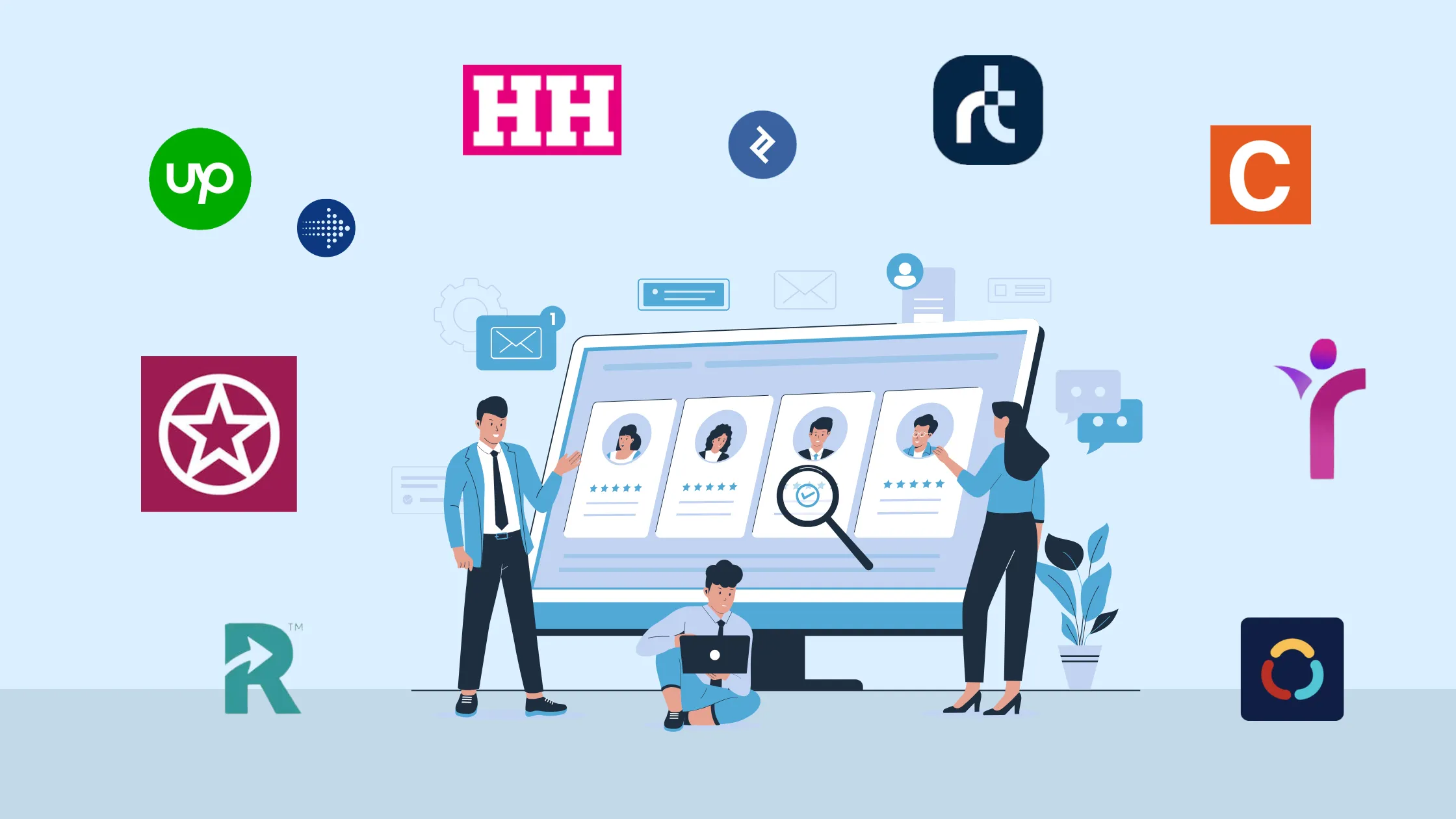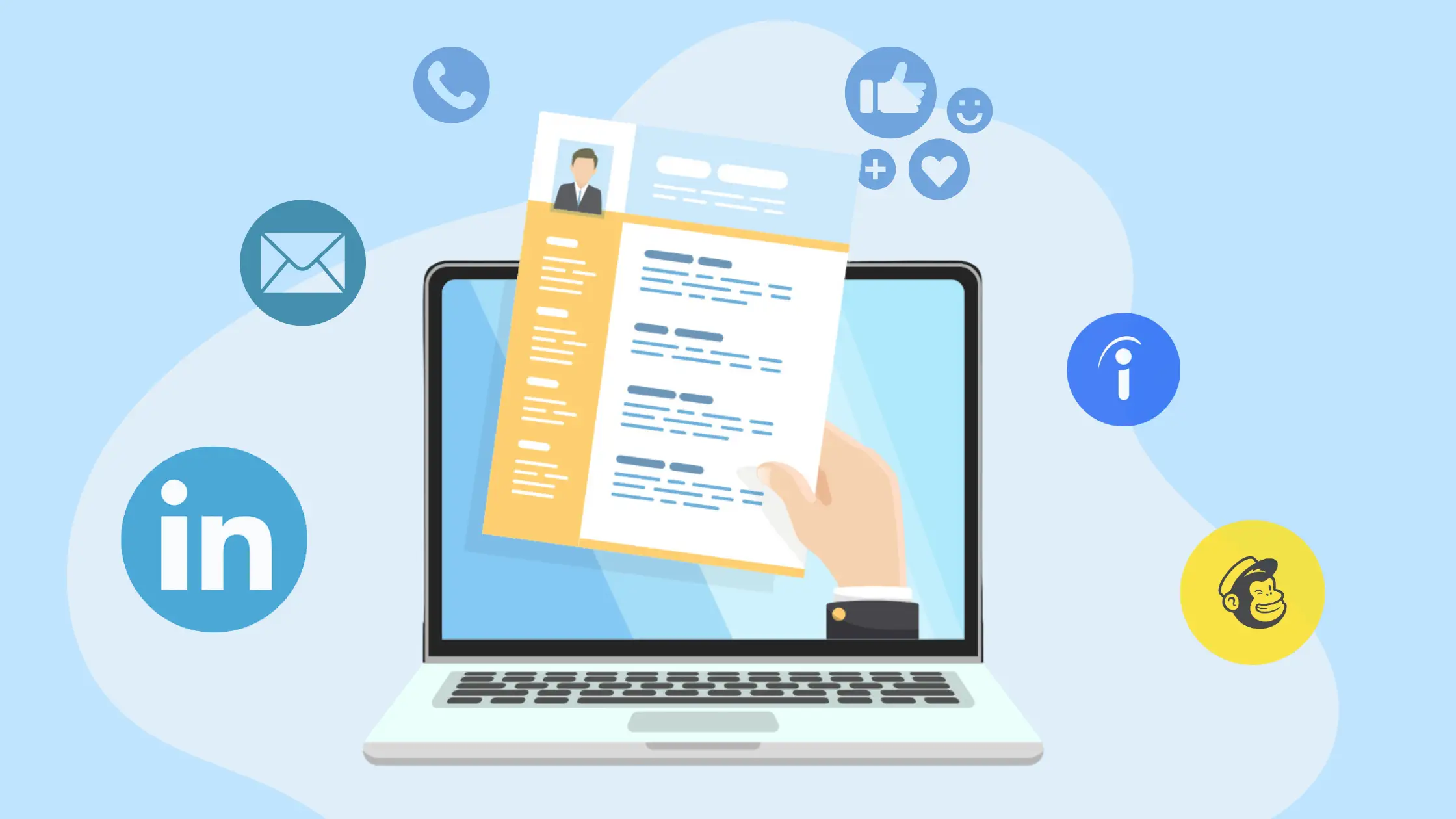TL;DR
- Personality tests for jobs help assess candidates' behaviours, traits, and workplace attitudes.
- Various tests, such as MBTI, DISC, Big Five, Emotional Intelligence, TAT, and MMPI, serve different purposes.
- Advantages include revealing true personalities, reducing unconscious bias, and engaging candidates effectively.
- Disadvantages include the risk of using unsuitable tests and the potential for discrimination due to triggering questions.
In today's time, organisations need to make the most perfect hiring decisions than ever before. They no longer rely on only candidate qualifications and skills, but need to assess the personality types of the candidates they are hiring. As an employer, you know the importance of having job-specific personalities to handle organisational pressure and customer service. If you hire the wrong personality type, you may sign up for your organisation's downfall. But how do you know the candidate's personality? Here is where personality tests for jobs come into play. Personality tests for jobs are a series of questions that help you assess the candidate's nature and behaviour on the inside. In this blog, you will learn about different types of personality tests for jobs and their roles.
What are Personality Tests For Jobs?
Personality tests for jobs are a type of assessment that is conducted on the candidates to learn about their behaviours, traits, and attitudes in workplace settings. These tests are a requirement for jobs to assess any psychological issues with the candidates or their motivators that help them build positive relations in the workplace. Stemming from the field of psychology, personality tests for jobs have a large variety for different diagnoses and purposes.
Types of Personality Tests For Jobs
There are several personality assessment tests for jobs, but the main tests are the 5. Next, we learn about them.
Myers-Briggs type indicator
It is one of the best personality tests for jobs and is widely used, also known as the MBTI test. It is a fairly long test with 90+ questions to judge the personality of the candidates. It has 4 categories that include extraversion VS introversion, thinking VS feeling, judging VS perceiving, and intuition VS sensing. These categories help figure out which categories the candidates fall under. The test can tell if the candidates are emotionally strong, critical analysts, speakers, or observers. The test takers become a part of these groupings and are placed into one of the 16 personality types.
DISC test
This test divides people into four traits. These traits are,
- Dominance
- Influence
- Steadiness
- Consciousness/Cautious
These traits are the result of many sub-characteristics that help analyse candidates' behaviours in the workplace. DISC presents situational questions to the candidates. Their answers fall under the four personality traits that help the assessor judge the candidate's characteristics when they answer according to their personalities. For instance, if the candidate is dominant, they are likely to boss over the subordinates and use dominating methods to get the work done. The DISC test is most suitable to see the most suitable careers for the candidates, but can also be used as a pre-hiring personality test to choose the job-fit candidates.
Big Five Personality Test
This test is based on 5 main traits that include extraversion, agreeableness, openness, conscientiousness, and neuroticism. These tests analyse the amount of these traits present in the personalities of the candidates. The test is also available online, which is a free personality test for jobs.
Here you can test yourself by analysing your interpersonal traits. Extraversion tells about how open the candidate is to speaking out about their thoughts, talking to others, and expressing themselves. Conscientiousness tells about a candidate's impulsiveness or carefulness in their actions. Neuroticism tells about the way candidates perceive their situations, which could be either pessimistically or optimistically. Agreeableness tells about the helpfulness or uncooperativeness of the candidate. Openness to experience tells about how open the candidate is towards change and non-routine activities. All these trait analyses prove useful in judging the candidate's actions in the workplace, and you can make the right hiring decisions.
Emotional intelligence test
Mayer-The Salovey-Caruso Emotional Intelligence Test (MSCEIT) measures the four branches of Mayer's personality model. You can carry out this test to analyse the emotional intelligence of the candidates. Emotional intelligence refers to the ability to perceive, understand, manage, and handle your emotions. Different jobs have different levels of intelligence. For example, a medical professional is expected to have a stronger emotional intelligence than a second-grade art teacher. The four branches of this test are,
- Perceiving emotions
- Thoughts that result from emotions
- Understanding emotions
- Managing emotions
Self-report tests are the most common for assessing your emotions because they are easy to administer and score.
Who am I?
The ‘who am I’ test is a self-assessment test that tells you more about your personality type. The results can also tell you about how others perceive you. The test is common to judge yourself before you enter the professional world. This can also be a good way to describe yourself when the interviewer asks questions like, "Tell us something about yourself". You can analyse your personality type and also change and improve to fit the job roles and eradicate any weak personality traits.
Thematic Apperception Test
This test is not only limited to adults but children. The TAT test uses thirty-one picture cards that describe social situations and relationships. The Thematic Apperception personality test closely monitors behaviours and interprets any disorders or psychological illnesses. In the thematic apperception tests, candidates are shown several pictures where they need to tell a story about their past experiences. The storytelling can reveal many conscious and unconscious perceptions of the candidates about the pictures and their past experiences. This is valuable information that hiring managers can assess to understand the candidate's personality type. If the candidate is hesitant to respond upon encountering any particular picture, it means he or she has a negative experience and is not open enough to talk about it. Through this, too, you can judge a lot about the candidate's personality.
Minnesota Multiphasic Personality Inventory (MMPI)
The MMPI test is another type of personality test. But you run this test on candidates whom you suspect of being mentally ill or having any other clinical issues. It is not to be used for non-clinical personality testing, but running the tests on high-risk professionals, such as doctors or firefighters, is an exception. These professions are under severely stressful situations, so you can test them for any clinical issues. It is strictly to be carried out by a psychologist because only a psychologist can assess the clinical illnesses.
Advantages of Personality Tests For Jobs
Personality tests for jobs have many advantages when hiring. Some of these are,
1. Assess the real personalities
Candidates can come up with their best impressions and tell about all their positive traits. Candidates will never tell about their negative behaviours. This can be analysed through a personality test, as that tells about the real personalities of the candidates and makes hiring decisions easy.
2. Helps avoid unconscious bias
When recruiting, there is are high chance of you being biased towards some candidates and against others. When you perceive something about a candidate based on your bias, it can turn out to be wrong, and if you hire the wrong candidate, that will be very problematic. So, by running the personality tests for a job, bias goes out of the window. Irrespective of how good or bad you perceive a candidate, the test results tell you the truth and make decision-making easy for you.
3. Candidate engaging tests
The term test seems very strict and professional. However, personality tests for jobs can be more fun than they sound. You can create game tests that candidates can take from anywhere that they like. The engaging test content can bring you accurate answers. When your candidates are deeply indulge in their tests, the answers are likely to be correct, which can help in revealing the true personalities of the candidates.
Disadvantages of Personality Tests For Jobs
Personality tests for jobs are not limited to pros only, but have many cons too.
1. Wrong tests run
Every job role has a different set of requirements, hence the workers need to possess a particular personality type. Not all tests are suitable to analyse all types of personalities. You should know which personality test to conduct to prevent time and resource wastage. Wrong tests can result in bad hiring, too.
2. Discriminating personality tests for jobs
The questions in the personality tests for jobs can sometimes prove to be discriminatory against candidates who are suffering from mental illnesses. The questions could prompt anxiety or ill feelings in the candidates. To avoid this disadvantage, ensure that your choice of questions is not a trigger for any candidate and fulfils its purpose of personality analysis.
Final Thoughts
There are different types of personalities and many personality tests for jobs to analyse these personalities. As a recruiter, it is your responsibility to carry out the right tests to avoid bad hiring. Every job has its requirements of personality traits, so the right test must be carried out that analyses those traits most accurately. In this blog, we described 7 different types of personality tests for jobs, including MBTI, Big Five personality tests for jobs, and TAT tests. These tests are a great way for you to know about your candidates and any mental disabilities they might be suffering from. Ensure that a psychological expert prepares these tests for you so there are no gaps between what you need to assess and the results that you get. The personality tests for jobs answer your questions that you cannot directly ask the candidates. There are many advantages and disadvantages of these tests that you need to consider when conducting personality tests for jobs on your candidates.













